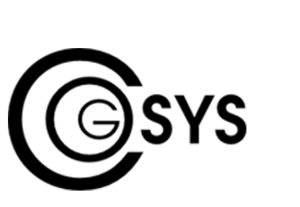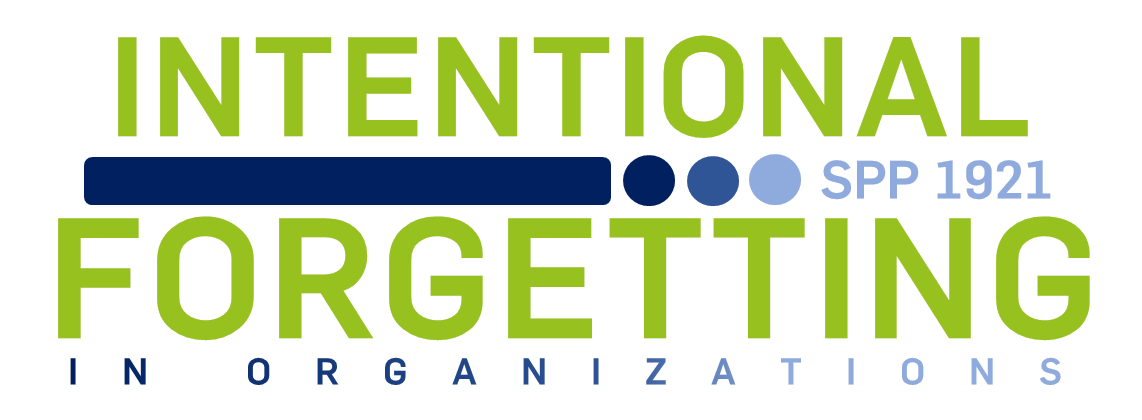
Dare2Del – Learning to Delete: Forgetting of Digital Objects as Collaborative Task of Human and AI
2016 - 2019: Dare2Del - Internales und externales intentionales Vergessen: Empirische Untersuchungen und prototypische Umsetzung eines Assistenzsystems zum intentionalen Vergessen digitaler Information

- What is this project about?
Focus of Dare2Del is to support employees in administration and production in regulating their digital knowledge by hiding and deleting irrelevant digital objects such as files. Irrelevant digital objects can hinder the search for information, delay decision-making processes, distract attention from the actual task and thus impair work performance and well-being. With the ever-increasing amount of digital data, it is becoming more and more important that employees are supported in cleaning up their digital clutter and in avoiding digital hoarding. In the interdisciplinary cooperation of psychology (work and cognition) and computer science (artificial intelligence), on the one hand, we empirically investigate intentional forgetting in the work context and, on the other hand, we develop a partnership-based AI system in which machine learning and knowledge processing are combined. The intelligent assistance system Dare2Del is based on an approach of explainable interactive machine learning which helps employees to recognize and delete irrelevant digital objects. System decisions are made transparent and comprehensible through explanations, and users are actively involved through the possibility of correcting system suggestions and explanations.
- What are the results of the project so far?
In the informatics part of the project, a prototype of a partnership AI system was designed and implemented, which makes suggestions about which digital objects could be deleted. Different approaches of inductive logic programming (ILP) were examined and extended. ILP is a hybrid AI approach where logic-based inference processes and machine learning are integrated based on a uniform formalism. Consequently, general requirements and regulations on storage or deletion requirements for digital objects can be explicitly modeled. Specific preferences of organizations or individuals are assessed in an interactive learning process and used to adapt the classification model. On the part of psychology, intentional forgetting was first examined in the context of work. It could be shown that intentional forgetting supports also adaptation to complex work routines (Niessen & Lang, 2020) and that intentional forgetting has different functions in the work context - from attention control to self-esteem protection to emotion regulation (Niessen, Göbel, Siebers, & Schmid, 2019). Situations in which people intentionally forget are, for example, characterized by high task complexity, novelty of the task, high time pressure or even breaks. The identification of situational factors that support or hinder intentional forgetting of memory content and digital objects was investigated in more detail in an experience sampling study in a work context, combined with a laboratory task (think / no think task). The study showed that time pressure motivates intentional forgetting in everyday work, but only if people have the ability to inhibit irrelevant information in their memory. People with little ability to inhibit irrelevant information in their memory have difficulties controlling disturbing and distracting thoughts in their everyday work, even under moderate time pressure (Niessen, Göbel, Lang, & Schmid, 2020). Since the intentional forgetting of externally represented information is important in socio-digital systems while working, the deletion of irrelevant information was also examined. It was found that especially people who had a low ability to inhibit unwanted information in their memory were more likely to delete files and documents when outdated information hindered the workflow (Niessen, Göbel, Siebers, & Schmid, 2018).
Muggleton, S. H., Schmid, U., Zeller, C., Tamaddoni-Nezhad, A., & Besold, T. (2018). Ultra-Strong Machine Learning: Comprehensibility of programs learned with ILP. Machine Learning, 107, 1119–1140. doi: 10.1007/s10994-018-5707-3
Niessen, C., & Lang, J. (2020). Does directed forgetting improve adaptive performance? An experiment using a complex work task. Journal of Applied Psychology.
Niessen, C., Göbel, K., Siebers, M., & Schmid, U. (2019). Time to forget: A review and conceptual framework of intentional forgetting in a digital world of work. Zeitschrift für Arbeits- und Organisationspsychologie.
Niessen, C., Göbel, K., & Lang, J., & Schmid, U. (2020). Stop thinking: An experience sampling study on the intention and ability to suppress distracting thoughts at work. Frontiers in Psychology, 11, 1616. https://www.frontiersin.org/articles/10.3389/fpsyg.2020.01616/full
Siebers, M., Göbel, K., Niessen, C., & Schmid, U. (2017). Requirements for a companion system to support identifying irrelevancy, International Conference on Companion Technology (ICCT, Ulm, 2017), pp. 1–2, IEEE Press. doi: 10.1109/COMPANION.2017.8287076
Siebers, M., & Schmid, U. (2019). Please delete that! Why should I? Explaining learned irrelevance classifications of digital objects. KI – Künstliche Intelligenz, Special Topic Intentional Forgetting, 33(1), 35-44. doi: 10.1007/s13218-018-0565-5
- What are the objectives of the project?
(1) Extension of the Dare2Del prototype to generate verbal and contrastive explanations.
(2) Extension of the hybrid machine learning approach for incremental learning from user feedback, especially from corrected explanations.
(3) The evaluation of the deletion assistance as well as the effect of explanations on the acceptance of the deletion recommendation, the trust in the system, and memory performance.
(4) The identification of personal and situation-related factors that promote or hinder the hoarding of digital objects.
- How can organizations use the results?
The interactive AI system Dare2Del which is based on a hybrid approach of knowledge processing and machine learning can be used to identify irrelevant data and files, thus saving storage space and helping employees avoid digital hoarding.
Project team

| Prof. Dr. Niessen, Cornelia |

|
Institute of psychology | Applicant |
ResearchGate Google Scholar |
cornelia.niessen@fau.de |
| Dr. Göbel, Kyra, |

|
Institute of psychology |
ORCID ResearchGate |
kyra.goebel@fau.de |


| Prof. Dr. Schmid, Ute |

|
Cognitive Systems | Applicant |
ORCID ResearchGate Google Scholar |
ute.schmid@uni-bamberg.de |
| Nandini, Durgesh, M.Sc. |

|
Cognitive Systems |
ORCID ResearchGate Google Scholar |
durgesh.nandini@uni-bamberg.de |
Former collaborators
| Feuerbach, Magdalena, B.Sc. |

|
ResearchGate | |||
| Siebers, Michael, Dipl.-Psych. B.Sc. |

|
ORCID ResearchGate Google Scholar |
Links
-
GEPRIS (2019 - 2022)
-
GEPRIS (2016 - 2019)
-
Dare2Del project homepage
-
Uni Bamberg Cognitive Systems
-
Uni Erlangen-Nürnberg Psychologie im Arbeitsleben

